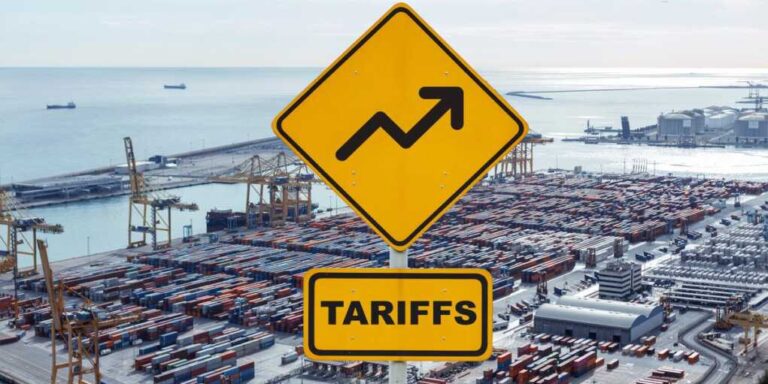
President Trump just sent a shockwave through Silicon Valley with a bold announcement: a 100% tariff on imported computer chips—unless companies commit to building facilities in the U.S.
Standing beside Apple CEO Tim Cook at the White House, Trump declared that the days of outsourcing chip production are over. “We’re bringing the tech supply chain home,” he said, adding that companies who invest in America will be exempt from the tariff. Apple, he noted, has already secured its exemption, with Cook pledging a major boost in U.S. jobs and manufacturing.
This is a dramatic escalation in Trump’s America First economic agenda—and one with serious teeth. Nearly every sector of the economy, from smartphones to electric vehicles to appliances, relies on imported chips. And most of those chips come from Asia.
But instead of offering a vague promise to “look into it,” Trump is playing hardball. His message to the tech industry is simple: you want to sell in America? Then build in America.
The ripple effect has already begun. Nvidia, one of the world’s most powerful AI and semiconductor companies, recently announced a $500 billion investment to manufacture in the U.S., including supercomputer plants in Texas and a massive chip production hub in Arizona. Foxconn and Wistron are joining in to accelerate that effort.
According to a senior administration official, the tariff isn’t meant to be a punishment, but a “breathing room” strategy to give companies time to realign their supply chains without being crushed. But Trump left no doubt: companies that try to wait it out will pay.
What’s still unclear are the specifics of the exemption policy. Trump hasn’t said whether it applies only to new factories, how long the grace period will last, or what minimum investment qualifies. And that ambiguity may be intentional—it gives the White House leverage in ongoing negotiations with major tech firms.
The announcement is already pushing other industry giants like Amazon, OpenAI, and Eli Lilly to scramble and announce U.S.-based manufacturing plans. A growing number of companies realize that ignoring Trump’s policy shift comes with a serious cost.
The deeper issue, however, is strategic. America has long depended on overseas chipmakers, particularly Taiwan. That’s a dangerous game in a world where geopolitical instability can shut down supply overnight. Trump’s policy aims to end that dependency—for good.
This isn’t just about jobs or economics; it’s about national security. The White House has repeatedly warned that tech dependence on adversarial or unstable regions could leave America vulnerable. Trump’s tariff plan is designed to kick-start a new era of U.S. technological independence, starting with the most critical component: semiconductors.
Trump also took a moment to praise Tim Cook personally, calling him a “great, great man” and holding Apple up as a model for other companies. Cook, in turn, promised to significantly ramp up American manufacturing, a move that likely helped Apple win its tariff exemption.
Critics in the globalist camp are already clutching their pearls, warning that Trump’s move could disrupt global markets. But Trump’s team doesn’t seem worried. They believe the long-term benefits—restoring control over chip production and reasserting American manufacturing dominance—far outweigh short-term turbulence.
The president’s message was loud and clear: America won’t be held hostage by foreign chipmakers anymore. If you want access to the American market, bring your factories here.
And with Apple and Nvidia already on board, it looks like the rest of Big Tech won’t be far behind.




